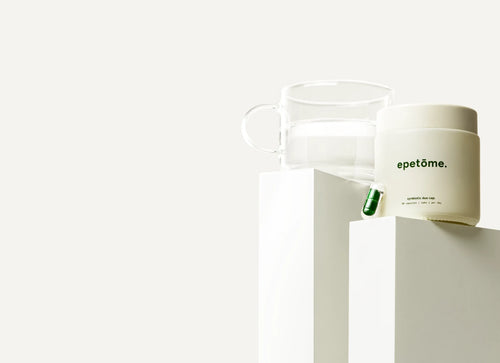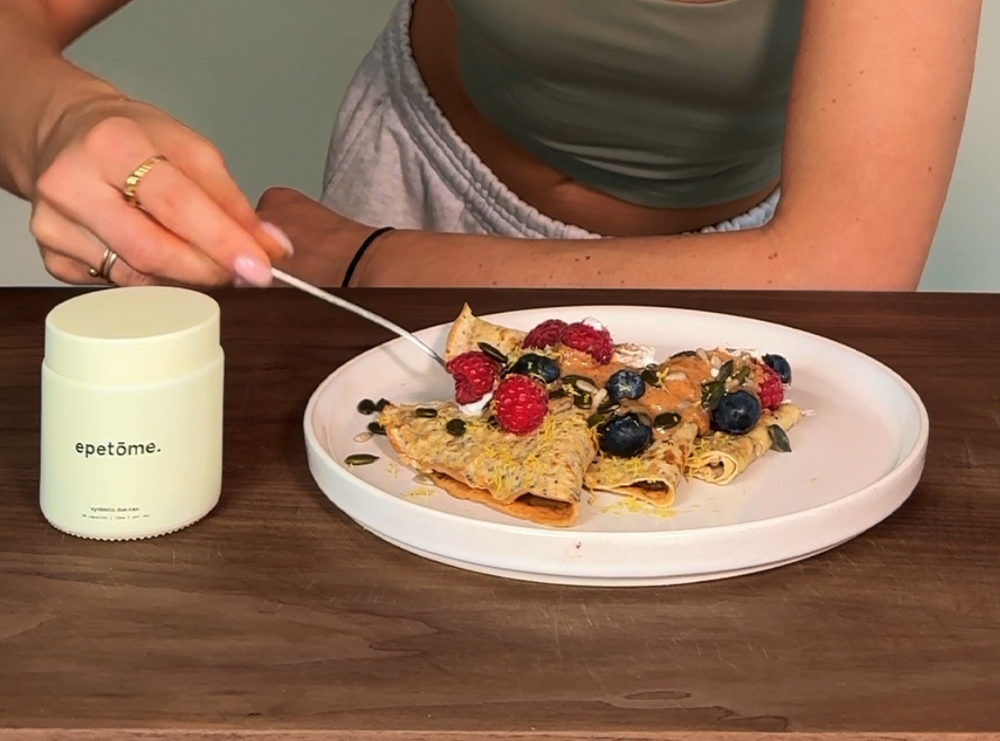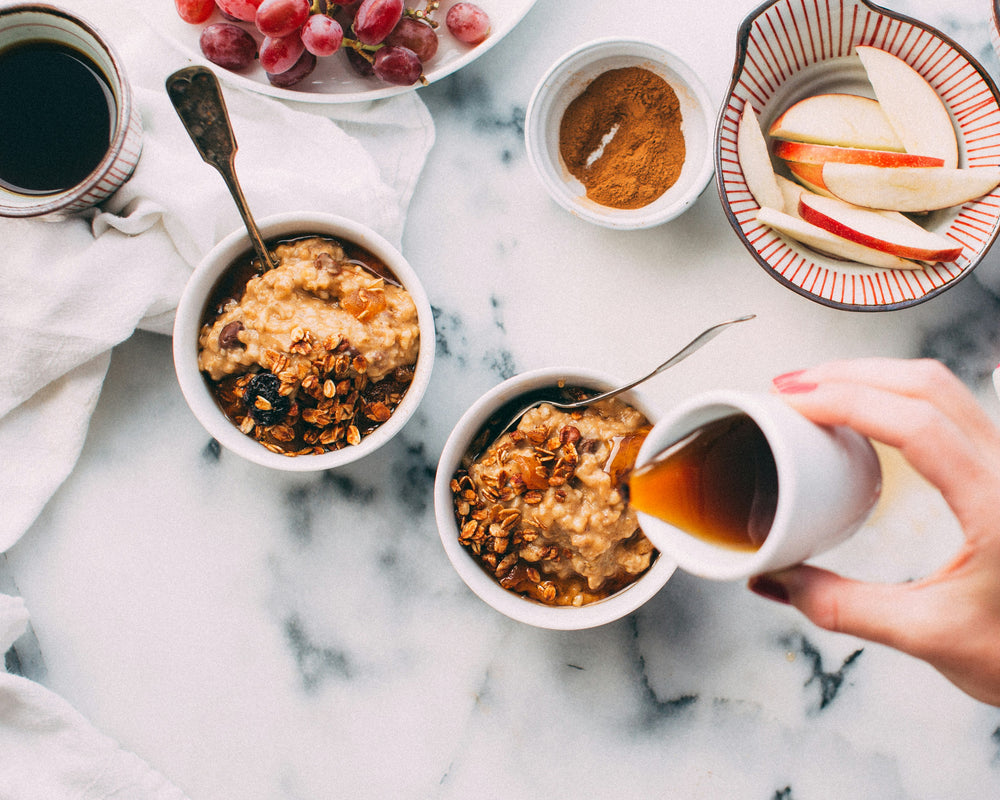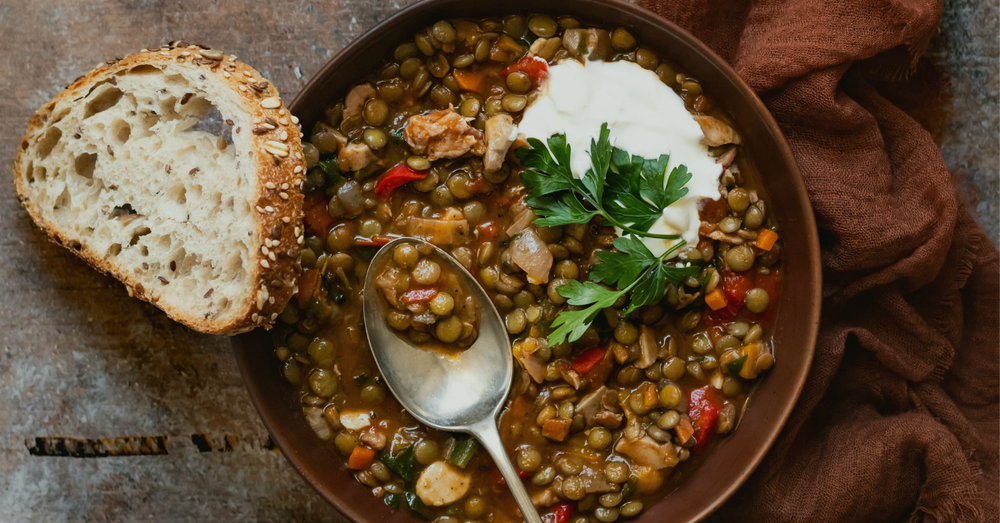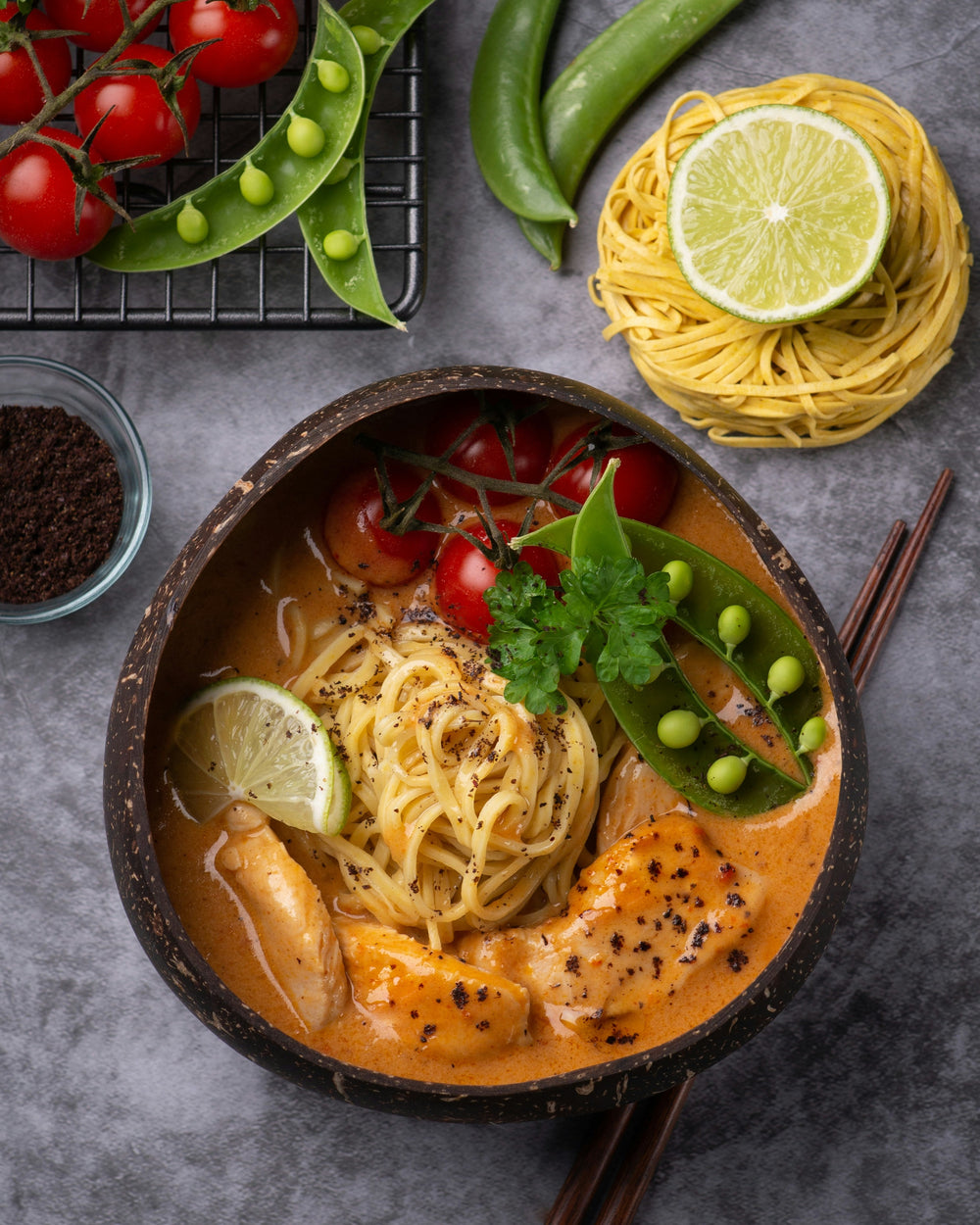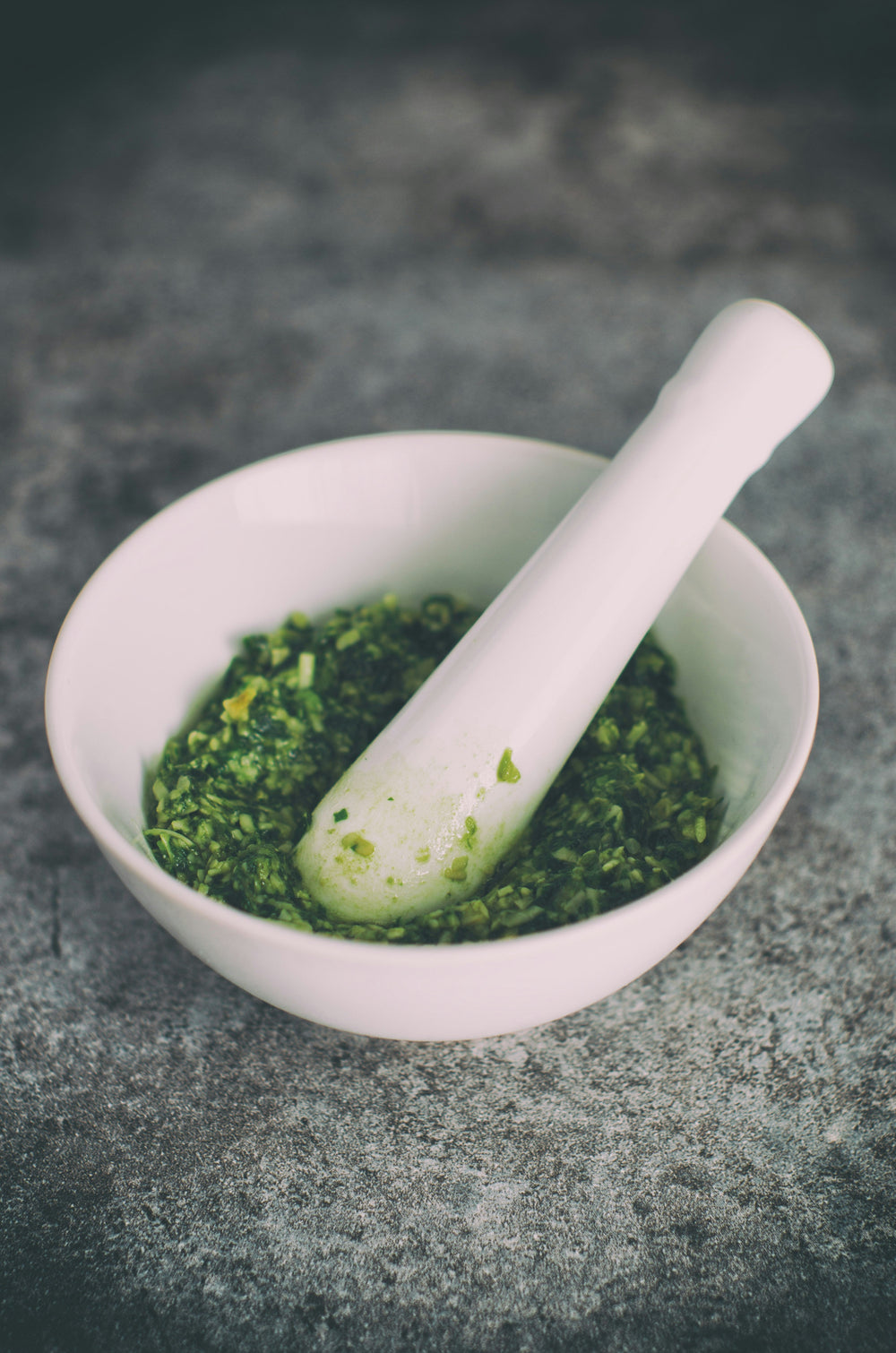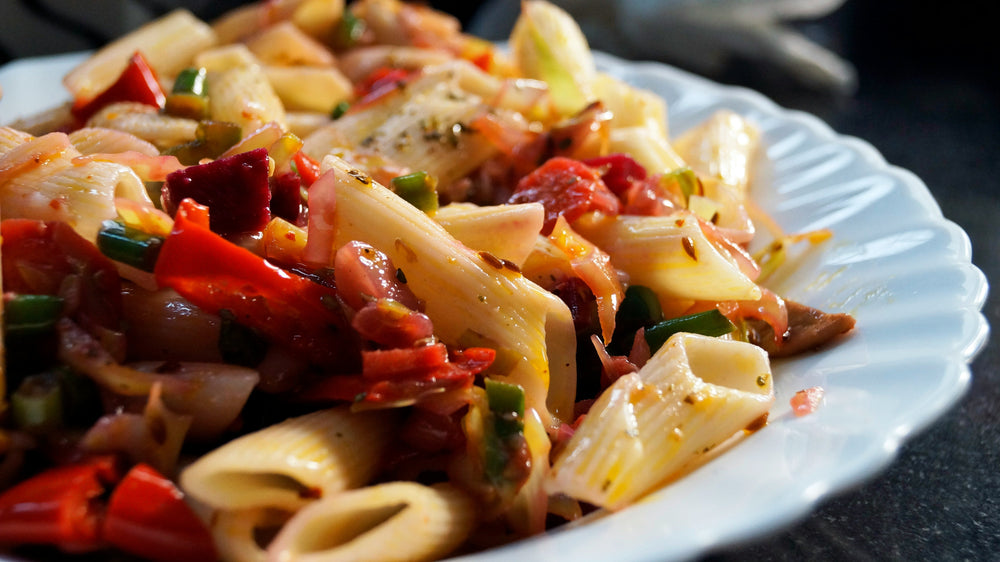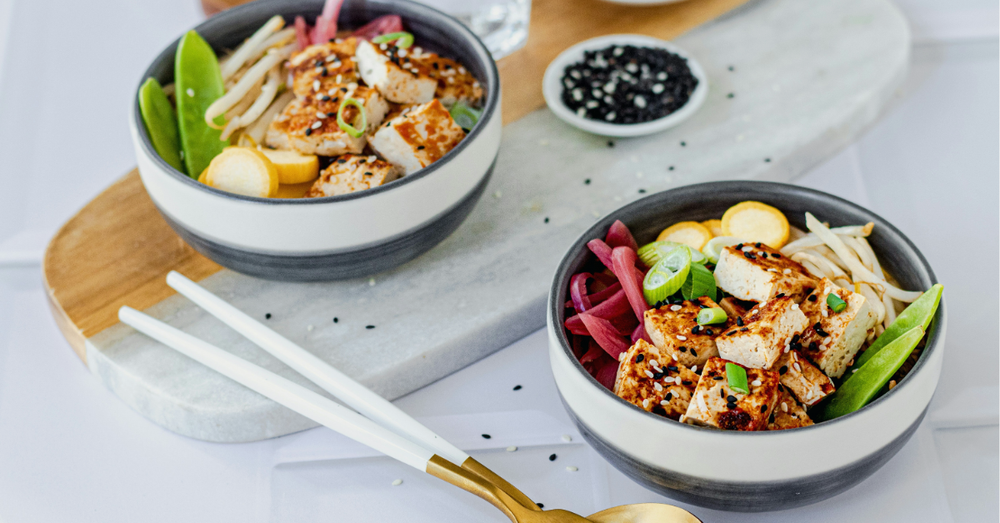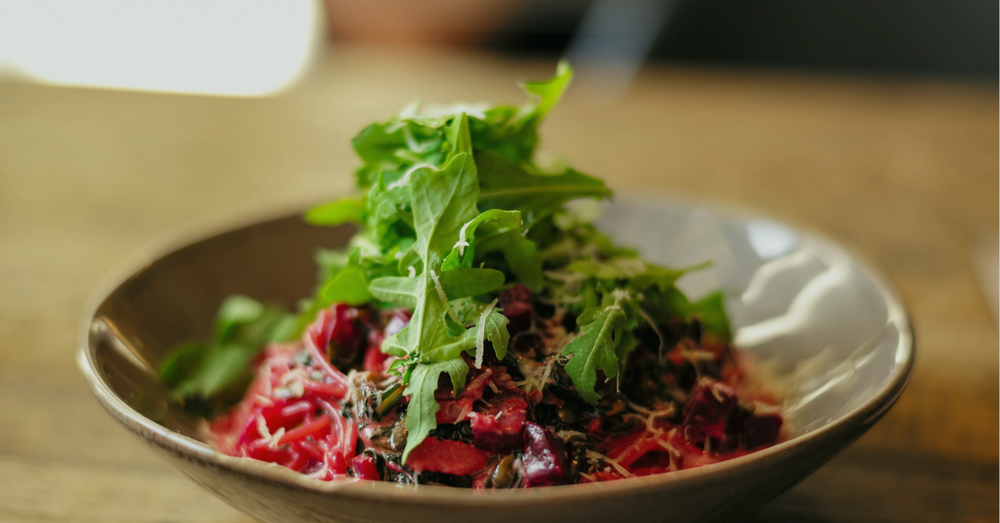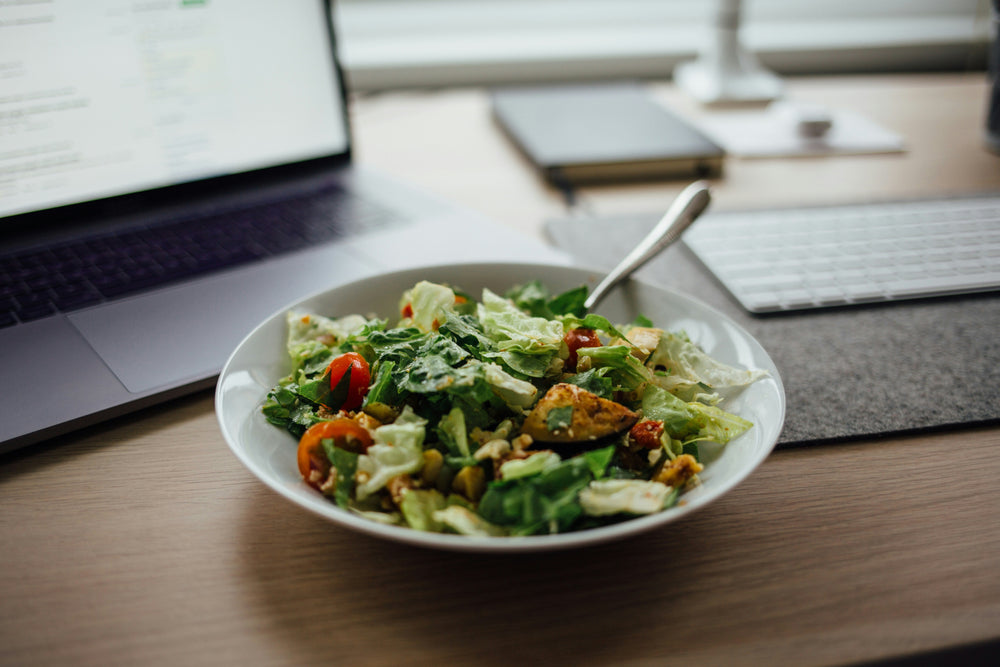This creamy green soup brings together broccoli, cauliflower, and kale for a delicious bowl that feels both comforting and energising. Finished with crispy chickpeas and toasted almonds, it is an easy way to enjoy a whole day’s worth of greens in one simple, nourishing meal.
how to get your glow back.
Holiday Hangover? Why Your Skin is Feeling the Effects Introduction After weeks of enjoying festive meals, desserts, and celebratory drinks, it’s common to notice your skin isn’t looking its best come January. The gut-skin axis, which links gut health to skin appearance, plays a significant role here. When the gut microbiome becomes imbalanced, it can lead to inflammation and breakouts, making the post-holiday period a great time to refocus on nourishing your gut for better skin. Sugar and Its Impact on Skin The holidays usually come with sugar-packed treats like mince pies, chocolates, and desserts. While they are delicious, the excess sugar can wreak havoc on your skin in several ways: Triggers Inflammation: High sugar levels cause a rise in insulin, which increases hormones that boost oil production in your skin. This can lead to clogged pores and acne. Disrupts Gut Microbiome: Sugar feeds bad gut bacteria, causing inflammation that can make acne and uneven skin tone worse. Weakens Collagen: Sugar binds to collagen proteins in a process called glycation, making your skin less firm and more prone to wrinkles, speeding up signs of aging (Cao et al., 2020). Alcohol and Skin Hydration From mulled wine to festive cocktails, alcohol is often a staple of holiday celebrations. However, alcohol can have several negative effects on your skin: Dehydrates Your Skin: Alcohol is a diuretic, leaving your skin feeling dry and dull. Gut Permeability: Alcohol weakens the gut lining, leading to "leaky gut," which causes inflammation that shows up on the skin as redness or irritation. Stresses the Liver: The liver works harder to detoxify alcohol, which can result in a buildup of toxins that show on your skin as dullness or a tired complexion (Cao et al., 2020). Processed Foods and Skin Inflammation Holiday meals often include rich foods, like...
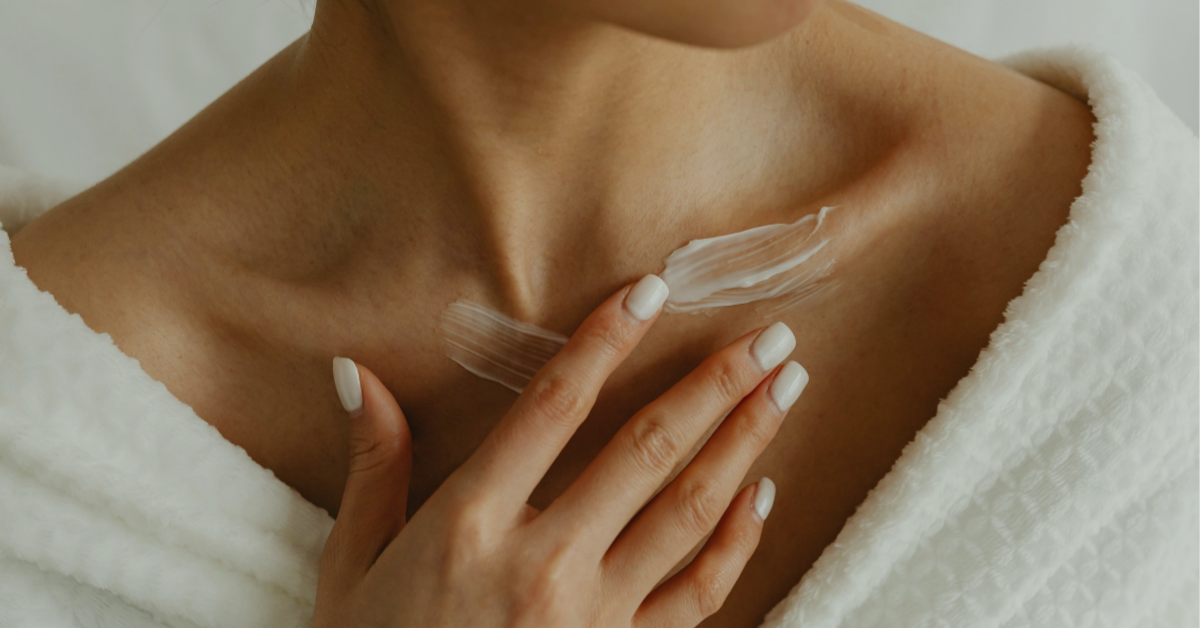
Holiday Hangover? Why Your Skin is Feeling the Effects
Introduction
After weeks of enjoying festive meals, desserts, and celebratory drinks, it’s common to notice your skin isn’t looking its best come January. The gut-skin axis, which links gut health to skin appearance, plays a significant role here. When the gut microbiome becomes imbalanced, it can lead to inflammation and breakouts, making the post-holiday period a great time to refocus on nourishing your gut for better skin.
Sugar and Its Impact on Skin
The holidays usually come with sugar-packed treats like mince pies, chocolates, and desserts. While they are delicious, the excess sugar can wreak havoc on your skin in several ways:
- Triggers Inflammation: High sugar levels cause a rise in insulin, which increases hormones that boost oil production in your skin. This can lead to clogged pores and acne.
- Disrupts Gut Microbiome: Sugar feeds bad gut bacteria, causing inflammation that can make acne and uneven skin tone worse.
- Weakens Collagen: Sugar binds to collagen proteins in a process called glycation, making your skin less firm and more prone to wrinkles, speeding up signs of aging (Cao et al., 2020).

Alcohol and Skin Hydration
From mulled wine to festive cocktails, alcohol is often a staple of holiday celebrations. However, alcohol can have several negative effects on your skin:
- Dehydrates Your Skin: Alcohol is a diuretic, leaving your skin feeling dry and dull.
- Gut Permeability: Alcohol weakens the gut lining, leading to "leaky gut," which causes inflammation that shows up on the skin as redness or irritation.
- Stresses the Liver: The liver works harder to detoxify alcohol, which can result in a buildup of toxins that show on your skin as dullness or a tired complexion (Cao et al., 2020).
Processed Foods and Skin Inflammation
Holiday meals often include rich foods, like fried treats, creamy sauces, and processed meats. These foods are typically high in trans fats (the bad type of fat), salt, and preservatives, which can affect your skin in a these ways:
- Promote Inflammation: Trans fats and salt can cause puffiness, redness, and irritation in your skin.
-
Gut Microbiome Imbalance: Processed foods disturb the gut microbiome. Since gut health is connected to your skin’s appearance, an imbalance can lead to flare-ups and uneven skin tone (Ahmed & Mikail, 2024).
5 Steps to Reclaim Your Glow
- Balance Your Microbiome: Research suggests that probiotics can help with acne (Zouboulis, and Seltmann, 2017), improve skin hydration (Sato and Ohnishi, 2016) and and support overall skin health and skin aging (Cao et al., 2020). Our synbiotic duo cap has been formulated to specifically help your skin look more radiant by supporting your gut health.
- Hydrate: Drink plenty of water to rehydrate your skin and flush out toxins. Herbal teas and coconut water can also help.
- Eat More Antioxidants: Focus on whole foods like fruits and vegetables, particularly those rich in vitamin C (citrus fruits, bell peppers, broccoli, brussel sprouts) and vitamin E (nuts and seeds) to repair and brighten your skin.
- Limit Sugar and Alcohol: Reducing sugar and alcohol gives your skin time to heal and rejuvenate.
- Moisturise and Repair: Be consistent with your skincare and use products with hydrating and calming ingredients to restore moisture and soothe your skin.
Conclusion
When you take care of your gut, your skin follows. With a few mindful changes, you can refresh both your gut and skin, helping you feel and look your best for the new year.
References:
- Ahmed, I. A., and Mikail, M. A. (2024). Diet and skin health: The good and the bad. Nutrition, 119, 112350. https://doi.org/10.1016/j.nut.2024.112350
- Cao, C., Xiao, Z., Wu, Y., & Ge, C. (2020). Diet and skin aging—From the perspective of food nutrition. Nutrients, 12(3), 870. https://doi.org/10.3390/nu12030870
- Jena, M., & Sahoo, A. (2018). Gut microbiota, probiotics and skin health: An overview. Frontiers in Microbiology, 9, 1012. doi: 10.3389/fmicb.2018.01012.
- Sato, J., & Ohnishi, T. (2016). Effect of probiotics on skin hydration and other skin properties: A randomized controlled trial. Journal of Clinical and Aesthetic Dermatology, 9(4), 26-31.
- Zouboulis, C. C., & Seltmann, H. (2017). The effect of probiotics on acne vulgaris: A systematic review and meta-analysis of randomized controlled trials. Journal of Dermatological Treatment, 28(2), 112-118. doi: 10.1080/09546634.2016.1249194.
lifestyle. gut health recipes.
ready in 10 minutes
herb-whipped cottage cheese chicken bagels.
These basil whipped cottage cheese protein bagels make a fresh, high-protein breakfast or lunch, combining creamy herb-blended cottage cheese with juicy chicken, rocket, and tomatoes. They’re quick to assemble, packed with flavour, and perfect for a nourishing breakfast or light lunch.
ready in 10 minutes
kiwi chocolate protein chia pots.
These Kiwi Chocolate Protein Chia Pots make an ideal high-fibre, high-protein breakfast that keeps you full and energised all morning. They’re quick to prepare, easy to store, and perfect for a healthy grab-and-go option.
ready in 15 minutes
spiced apple porridge.
This spiced apple and pumpkin seed porridge is a warming, high-fibre breakfast that’s perfect for cosy mornings. Made with creamy oats, gently caramelised apples and a crunchy pumpkin seed topping, it’s ready in just 15 minutes and serves one.
ready in 50 minutes
prep-ahead baked blueberry oats.
These prep-ahead oven-baked oats with blueberries and bananas are rich in protein and fibre, making them a nourishing, gut-friendly breakfast to enjoy all week.
ready in 15 minutes
spicy green eggs with feta.
These spicy green eggs with feta are a quick, protein-rich recipe packed with gut-friendly ingredients like spinach, courgette, and spring onion. Baked in the oven or air fryer, they’re simple to make, full of flavour, and support digestion with a balance of fibre, protein, and healthy fats. Perfect for breakfast, brunch, or a light meal, this vibrant dish proves that nourishing your gut can be both delicious and easy.
ready in 10 minutes
egg wrap with pesto.
Bright, fresh, and ready in just 10 minutes, this flavour-packed wrap serves one and is ideal for breakfast, lunch, or any time you’re after something simple yet filling.
ready in 10 minutes
peach cobbler overnight oats.
Start your day with a gut-friendly twist on a classic dessert. The peach cobbler overnight oats serve 2–3 and takes just 10 minutes to prepare the night before. Packed with fibre, flavour and feel-good ingredients, it’s the perfect make-ahead option for busy mornings or a nourishing snack you can enjoy any time of day.
ready in 15 minutes
smoky egg salad bagel crunch.
This smoky harissa egg bagel is the perfect 15-minute meal. Made with creamy Greek yoghurt, tangy pickles, and a hint of spice, it’s a high-protein twist on classic egg salad that delivers on both taste and texture. Ideal for busy days, this easy bagel recipe makes lunch feel gourmet without the effort.
ready in 20 minutes
chewy breakfast matcha protein cookies.
Soft, satisfying, and subtly sweet—these breakfast cookies are made to fuel your morning the right way. With fibre-rich oats, plant-based protein, and antioxidant-packed matcha, they’re a gut-friendly grab-and-go option that doesn’t compromise on flavour or function.
ready in 15 minutes
lemon & poppy seed pancakes.
Emily's light, gut-friendly crêpes are the perfect balance of fibre, protein, and healthy fats to support digestion and keep you feeling great.
ready in 10 minutes
carrot cake breakfast oats.
Start your day with a delicious and nutritious breakfast option - Carrot Cake Oats. Filled with fibre diversity to promote healthy digestion.
